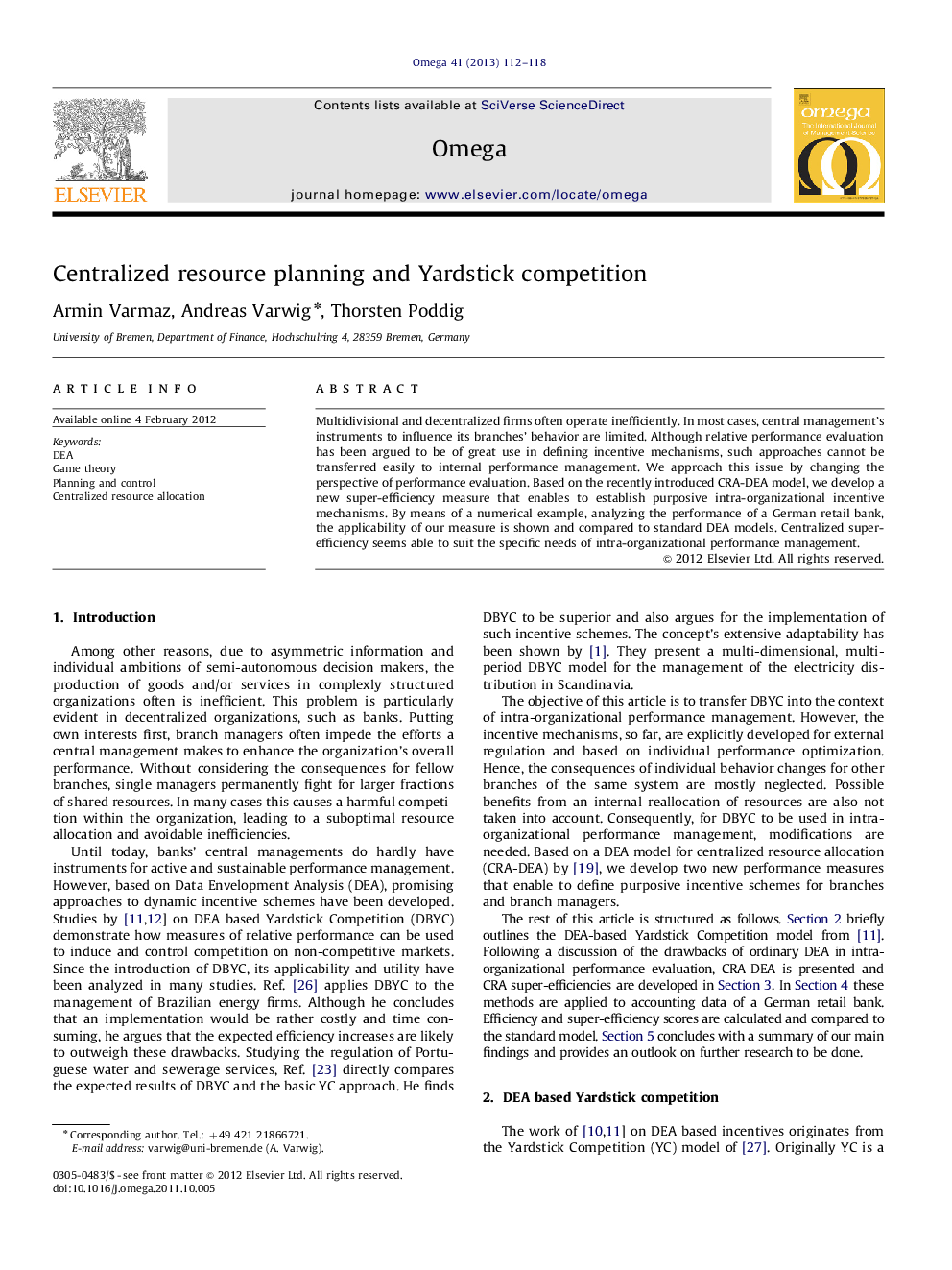| Article ID | Journal | Published Year | Pages | File Type |
|---|---|---|---|---|
| 1032721 | Omega | 2013 | 7 Pages |
Multidivisional and decentralized firms often operate inefficiently. In most cases, central management's instruments to influence its branches' behavior are limited. Although relative performance evaluation has been argued to be of great use in defining incentive mechanisms, such approaches cannot be transferred easily to internal performance management. We approach this issue by changing the perspective of performance evaluation. Based on the recently introduced CRA-DEA model, we develop a new super-efficiency measure that enables to establish purposive intra-organizational incentive mechanisms. By means of a numerical example, analyzing the performance of a German retail bank, the applicability of our measure is shown and compared to standard DEA models. Centralized super-efficiency seems able to suit the specific needs of intra-organizational performance management.
► Introducing centralized super-efficiency, we present new DEA measures for intra-organizational performance measurement. ► Our approach evaluates a (Sub-)DMU's contribution to a system's overall performance. ► The measures enable to account for interdependencies, such as shared resources, among DMUs. ► A case study is presented, demonstrating the applicability of our approach.
